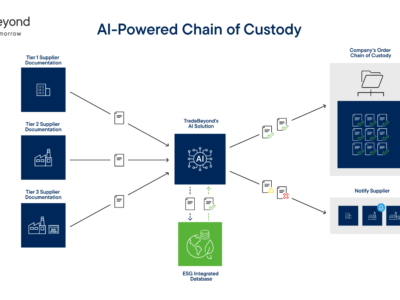By Bode Akinwale
To say e-commerce has become a part of our lives is to say the least. Many of us have had a reason to patronize the services of e-commerce platforms. The experience of many no doubt differs.
Indeed, the advent of e-commerce in Nigeria has been a refreshing experience. It has lent unprecedented ease to the shopping experience and given Nigerians more options. Gone are the days when potential shoppers must visit a physical store or crowded market to get their needs. Today, it is absolutely possible to stay in the comfort of your home or office, place an order for an item and have it delivered the same day, in some cases. You even have the option of paying on delivery when the item gets to you…
The multi-faceted benefits of e-commerce have further been brought to the fore in the light of our current reality with the COVID-19 crisis which is still making its rampaging run across the globe. As a matter of fact, e-commerce platforms, the world over, have aided people in several countries observe social distancing and contact-less shopping, with many relying on e-commerce for their essentials such as groceries, toiletries, medicine, food supplies and drinks during the lockdown occasioned by the crisis.
Here in Nigeria, the situation is hardly different.
Platforms such as Konga and Jumia, two of Nigeria’s most prominent players, were eminently positioned as emergency responders of some sort, especially in meeting the needs of millions of Nigerians desirous of observing social distancing while still being able to get their shopping requirements while ensconced in the safety of their homes.
“The Nigerian market is filled with adulterated brands. Worse still, it is difficult to distinguish these fake, sub-standard or adulterated brands from authentic ones…. Many shoppers who patronize e-commerce platforms also encounter fake or defective items on a daily basis.”
Sadly, in Nigeria’s case, the lack of a distinct institutional support for e-commerce firms by the government meant that a lot of Nigerians were not properly orientated to take advantage of these platforms. Many still thronged open-air markets to shop even as confirmed cases rose, further worsening the COVID-19 crisis in Nigeria. This is a topic for another day.
In addition, there were well-documented cases of heavy-handed implementation of the restrictions on movements by state actors such as the Police even against e-commerce players. Konga and Jumia for instance, reported a number of instances where its staff and delivery personnel were harassed or had their vehicles impounded for hours in the course of making essential deliveries, inter-state and even intra-state. On one instance, a Jumia warehouse was sealed for hours as reported in the press for not respecting social distancing in her operation. What a missed opportunity!
For some Nigerians who have been privileged to experience or engage in e-commerce on their trips to other climes such as countries in Europe or the United States of America, the birth and subsequent growth of e-commerce in Nigeria has been a welcome relief.
The beauty of e-commerce lies in its ability to elevate the shopping experience and the power of choice it affords the shopper. You can sit in the comfort of your room and window-shop to our heart’s content from the screen of your laptop or mobile device. Further, you can compare prices among competing platforms. Thereafter, when you have made the decision to shop, it is quite easy to pick out the desired item(s) and even place them in a virtual cart as you would do with a physical shopping cart in a mall, then proceed to check out. Next, you can choose to pay online or pay upon delivery. The crowning glory is when you receive that notification or call that your order has been processed and on their way to you and when the delivery man calls you to make the delivery, contact-less, of course, in the light of current realities.
Some platforms, such as Konga, even allow you the added convenience of deciding fulfilment options. After placing your order, you can choose to walk in to a store nearest to you at your convenience to pick up the items on your own, thereby enjoying the extra option of seeing the products in action before parting with hard-earned money. You can even finish checking out the items in the store and still choose to have them delivered to you. These are extremely flexible options today to keep shoppers safe.
Nevertheless, one downside of the e-commerce journey in Nigeria has been the struggle against sub-standard or fake products.
Not a few customers have, at one time or the other, had to cry out when an eagerly anticipated order arrives and it turns out to be fake or in some cases, is quite significantly different from what was ordered online.
“To become a merchant on Konga, you must be ready to meet up with standards or face blacklisting. After I registered to become a seller on the site, the first thing I observed was the fact that it was the only e-commerce platform that took me through a strict process meant to acquaint me with the ethics of the business.”
E-commerce enthusiasts have attributed this worrying phenomenon to the rise of the marketplace in Nigerian e-commerce. To better situate this phenomenon, it is worth retracing its origins.
The marketplace structure was pioneered in Nigeria by Konga, one of the early players in the industry. It was a noble and lofty idea that was borne out of the need to offer shoppers a wide variety of products, ranging from consumables to household appliances, FMCG, heavy equipment, sports and fitness gear, wines and alcoholic spirits, medicines and even books. The floating of this revolutionary marketplace structure transformed Konga into Nigeria’s largest shopping mall, expanding the bouquet of products on its platforms into several thousands. It was termed a very creative innovation.
Equally important, Konga’s marketplace structure created employment opportunities for many Nigerians. By offering willing merchants a reliable and powerful engine with which to reach more Nigerians with their products and services, Konga transformed the lives of these hitherto small time traders as many of them grew their business and began to reach more shoppers through the platform.
However, as with any such laudable innovation, other players in the e-commerce sector copied the Konga marketplace strategy. But as is often the case when such happens, most of those who sought to replicate the Konga strategy failed to replicate it to the letter.
How?
Today, Konga is home to thousands of merchants all carrying out legitimate commerce on its platform. However, every single one of these merchants passed through a rigorous on-boarding process. But can that be said to be the case with other e-commerce players who copied the strategy?
As a merchant who sells on a number of e-commerce sites, I am in a privileged position to throw more light on these issues.
The process of becoming a merchant on Konga does not just end with you filling out an online form and then paying a fee to have your digital store set up and listed. This is often the case with other e-commerce companies. But not so with Konga.
To become a merchant on Konga, you must be ready to meet up with standards or face blacklisting. After I registered to become a seller on the site, the first thing I observed was the fact that it was the only e-commerce platform that took me through a strict process meant to acquaint me with the ethics of the business. The first thing I was told during the on-boarding process was to forget about listing any fake or substandard product on the site as that would instantly get me shut down. It was an eye-opener!
In addition, I was made to understand the uncompromising adherence to deadlines, especially when orders come through. Due to the fact that Konga places huge pride on its delivery promise, there are set deadlines for shipping a customer’s order else Konga cancels the order. When such happens, the merchant is penalized. What this means is that you have to constantly be on your toes when selling on Konga.
Now, to the issue of fake products…
The problem lies in the standards applied by other players in the e-commerce industry. Today, virtually every Nigerian, if given a chance, has one thing or the other to sell. Go to Instagram and you will see the overwhelming rise in sellers on that platform. Most of these online traders want to put their products at the reach of more customers. In other words, they are desirous of platforms that would help get more eyeballs on their offerings. What better platforms can give you such leverage, if not e-commerce?
So, most of them decide to get their items listed on major e-commerce platforms. Now, we are talking about people selling all manner of items, from waist beads, sex toys and baby items to air-fresheners, jewelries and even food items, among others.
Furthermore, the source of these items vary from one seller to the other. Two prospective sellers of the same product may get their supply from widely disparate sources. How do you ensure, at the end of the day, that what gets shipped to the customer is of the highest quality?
This is where standards come in; laying or putting down an established process that must not be waived for any reason whatsoever. In fact, during the three years I have spent as a merchant on the Konga platform, I have seen many of my colleagues penalized, blacklisted or shut down totally from the platform. I have also been penalized twice for failing to meet up with a delivery timeline but never for the quality of the goods and products I make available on the website.
In essence, the point is that the experience did not only help Konga ensure that its unflinching high standards are maintained; it also helped me become a better merchant. For over two years now, I have not defaulted on any of my deliverables to the customer.
The Nigerian market is filled with adulterated brands. Worse still, it is difficult to distinguish these fake, sub-standard or adulterated brands from authentic ones. It is even worse when you have to buy these items from an open-air market. A friend once bought a supposed pack of skimmed milk only to get home and find that what was in the pack was garri!
But is e-commerce any better?
Many shoppers who patronize e-commerce platforms also encounter fake or defective items on a daily basis. However, with a standard in place such as the one Konga has running, fake products are a rarity. In fact, as a merchant on Konga, you become a stakeholder in the business. This is because on a regular basis, you are reminded of the fact that your role is every essential to the company’s established mandate of ensuring utmost customer satisfaction at every given interaction. Thus, you bear a high burden to live up to that responsibility.
While many would cry out for intervention by government agencies such as the Standards Organization of Nigeria (SON) and others in battling the spectre of fake products, it is worth stating here that self-regulation remains the best way forward. This is what Konga has enforced for so many years with its marketplace structure which remains the most structured in Nigeria and beyond.
If other e-commerce players had also aped the Konga zero-tolerance policy when copying its marketplace structure, the issue of fake or sub-standard products getting into the hands of shoppers would have been a foregone conclusion in Nigerian e-commerce.
Bode Akinwale (real names withheld for fear of recriminations) is a merchant who trades on Konga, Jumia and other e-commerce sites































